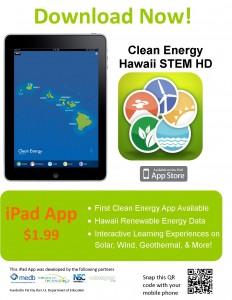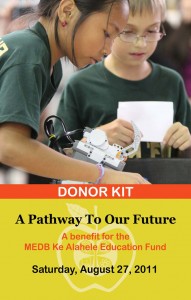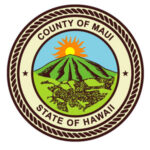
May 14, 2011 | Events

In partnership with Maui Economic Development Board, Maui Native Hawaiian Chamber of Commerce and the Maui Arts and Cultural Center
Date: Sunday, May 15, 2011
Location: Maui Arts and Cultural Center
Time: 11:00AM to 12:15PM
Submit your questions to the Governor when you RSVP.
RSVP: michelle.yamashita@hawaii.gov or call 808-243-5796 to reserve your seat.
May 13, 2011 | Community
 The ancient Romans had a phrase for it: Mens sana in corpore sano – “a healthy mind in a healthy body”, referring to the ideal balance for living a productive life. Thanks to coaches and community volunteers like Scottie Zucco, our keiki in Maui County are able to pursue sporting activities that enhance their lives. Zucco is the founder of the Aloha Volleyball club, which counts well over 100 participants and whose mission is to grow volleyball on Maui. The club does a lot a voluntary “behind the scenes” work, maintaining volleyball courts around Maui and running free tournaments year-round. The club also holds instructional camps and offers financial assistance as needed. Zucco has a fullschedule; in addition to his voluntary activities, he is a parttime PE teacher at Kula Elementary School and Achievement Academy, a Wailuku homeschool, and he coaches the Seabury Hall girls’ varsity volleyball team.
The ancient Romans had a phrase for it: Mens sana in corpore sano – “a healthy mind in a healthy body”, referring to the ideal balance for living a productive life. Thanks to coaches and community volunteers like Scottie Zucco, our keiki in Maui County are able to pursue sporting activities that enhance their lives. Zucco is the founder of the Aloha Volleyball club, which counts well over 100 participants and whose mission is to grow volleyball on Maui. The club does a lot a voluntary “behind the scenes” work, maintaining volleyball courts around Maui and running free tournaments year-round. The club also holds instructional camps and offers financial assistance as needed. Zucco has a fullschedule; in addition to his voluntary activities, he is a parttime PE teacher at Kula Elementary School and Achievement Academy, a Wailuku homeschool, and he coaches the Seabury Hall girls’ varsity volleyball team.
“My philosophy in coaching volleyball is about building character first; competition comes second,” says Zucco. “Young athletes mirror what their adult role models are doing, and I’m a believer in the system embraced by legendary UCLA basketball coach John Wooden. His “pyramid of success” stresses values such as hard work, enthusiasm, loyalty, self-control and commitment. A good coach has to care about each child, and these qualities define character,” he adds.
Zucco has done much to promote youth beach volleyball on Maui, a format that the NCAA has just recognized as a scholarship-eligible college sport. He is quick to recognize that the rise in popularity in the both indoor and outdoor volleyball owes much to the hard work of other clubs in the community and growing cooperation amongst coaches. “Right now I’m working on plans to develop more courts and facilities,” says Zucco. “This year we pioneered a pilot High School beach league, and one of my goals is to see it develop as an official sport in the MIL.”
May 10, 2011 | Environment
 A recent article (April 26) in the Pacific Business News (PBN) described progress in efforts to develop a 200 MW wind farm on Molokai.
A recent article (April 26) in the Pacific Business News (PBN) described progress in efforts to develop a 200 MW wind farm on Molokai.
Take this poll and tell us what you think.
[poll id=”2″]
May 5, 2011 | Environment
 Gunars Valkirs, a renowned biophysicist, volunteers his time and considerable expertise to the Whale Trust, a Maui-based nonprofit organization that conducts permitted research on the complex behavior, communication, and social groupings of humpback whales. Currently, one strand of the Trust’s research focuses on the relationship between whale behavior and steroid hormone levels tested in blubber samples. Among his other contributions, Valkirs is mentoring and supervising students analyzing the hormone samples at Lahainaluna High School in teacher Steven Cornell’s biotechnology lab.
Gunars Valkirs, a renowned biophysicist, volunteers his time and considerable expertise to the Whale Trust, a Maui-based nonprofit organization that conducts permitted research on the complex behavior, communication, and social groupings of humpback whales. Currently, one strand of the Trust’s research focuses on the relationship between whale behavior and steroid hormone levels tested in blubber samples. Among his other contributions, Valkirs is mentoring and supervising students analyzing the hormone samples at Lahainaluna High School in teacher Steven Cornell’s biotechnology lab.
Valkirs has spent his distinguished professional career in medical diagnostics after graduating with a doctorate from UC San Diego. He invented and developed the first rapid, visual pregnancy test before founding his own diagnostic research company, Biosite Inc. After selling the company in 2007, Valkirs and his wife, JoRene, retired to Maui and established the Makana Aloha Foundation, a private family foundation committed to supporting and improving the Maui community. “We share the community values expressed through Focus Maui Nui. Before we moved here, we had not fully appreciated the strong sense of community and ‘ohana,” notes Valkirs.
Commenting on public education in Maui Nui, Valkirs says, “I am a product of public education and I am committed to supporting excellence.” Valkirs explains that his foundation supports public education through the agriculture program and science lab at Lahainaluna High School; environmental conservation, especially the work of the Whale Trust; human needs through healthcare projects; and the arts. Valkirs’ vision for future work includes a marine biology facility within the public school system, and establishing active collaboration in whale research between students from Maui and Alaska.
Meanwhile, the work of the Whale Trust continues by promoting scientific research on whales and the marine environment, and by developing public education programs based directly on research results. For more on the Whale Trust, go to: http://whaletrust.org/.
Apr 28, 2011 | Community

Photo by Caitlyn Panis
Ten Things Your Family Can Do To Perpetuate Your Cultural Heritage:
- Trace your family tree
- Attend cultural events, festivals and gatherings
- Collect the memories of your grandparents and elders in your cultural community
- Share old family photographs
- Maintain your cultural traditions
- Teach your children about the language of your heritage
- Join a group that celebrates your culture
- Learn about the history, art, and music of your cultural heritage
- Cook traditional foods and share family recipes
- Encourage your children to take lessons in the dances of your cultural heritage
How does your family perpetuate your cultural heritage?

Apr 21, 2011 | Education, Stemworks

In Celebration of EARTH DAY and in honor of teachers, students and parents worldwide, download the Clean Energy Hawaii STEM iPad App from iTunes on April 22nd!
Download the app on iTunes ->
Read the Press Release ->
Apr 21, 2011 | Environment
 Continuing our series on newly appointed County Department Directors, reflecting the role of government in responding to community values and needs.
Continuing our series on newly appointed County Department Directors, reflecting the role of government in responding to community values and needs.
The priorities for Kyle Ginoza, Director of the County Department of Environmental Management, are directly aligned with two of the community values identified through the Focus Maui Nui process: Protecting the environment, through solid waste management and wastewater reclamation, and addressing related infrastructure challenges to improve capacity and ensure reliability of service. At the same time, Ginoza is responsible for ensuring the County is in compliance with EPA and other Federal and State regulatory mandates. His immediate challenges are launching a pilot curbside recycling program in South Maui, and expanding the recycled water capacity of the Lahaina wastewater treatment plant.
Ginoza was born and raised on Maui and graduated from Maui High School. He earned degrees in mechanical engineering from Stanford University and a Masters in Business Administration (MBA)from UCLA before beginning his career as a Project Manager for Honeywell in the field of commercial jet air conditioning. He returned with his wife, Kim, who is also from Maui, to raise their young family. He was Director of Transportation during Mayor Arakawa’s first term (2003-06), overseeing the early days of the Maui Bus system. More recently, he worked as a project manager for Munekiyo and Hiraga Inc., and for the County as a project engineer in their wastewater division.
“My family is my priority outside of my work for the County,” says Ginoza. “I’m proud to be my daughters’ soccer “Team Dad” and go to their swimming practices. I’m also involved in education as a volunteer Board Member for the Wailuku Hongwanji Mission Japanese School.” Ginoza’s family-oriented values are enhanced by an unexpected talent – as a recreational magician. “I’m the free entertainment at birthday parties for my daughters and their friends. I have a bevy of tricks. I really enjoy that,” Ginoza adds with a warm smile.

Apr 19, 2011 | Community
 Mark your calendars for Saturday, August 27, 2011 for the MEDB Ke Alahele Education Fund! Held at the Grand Wailea Resort Hotel & Spa, featuring Distinguished Educators U.S. Senator Daniel K. Inouye, his wife Ms. Irene Hirano, and Mayor Alan Arakawa and his wife Ann headline the event.
Mark your calendars for Saturday, August 27, 2011 for the MEDB Ke Alahele Education Fund! Held at the Grand Wailea Resort Hotel & Spa, featuring Distinguished Educators U.S. Senator Daniel K. Inouye, his wife Ms. Irene Hirano, and Mayor Alan Arakawa and his wife Ann headline the event.
Sponsorships are now available. For more information, contact Maui Economic Development Board, Inc. at 808-875-2300 or visit the MEDB website.
Download the 2011 Ke Alahele Donor Kit
Empowering over 30,300 students to date…
The MEDB Ke Alahele Education Fund stimulates community investment in broadening career pathways for Maui County residents. Grants awarded from the Fund support needs and opportunities in Science, Technology, Engineering and Math that enhance our education system and activities.
Make a difference by continuing to empower our students by support the Ke Alahele Education Fund. When they succeed, we all succeed.
Fund the journey!
Apr 13, 2011 | Community
 Lehua Park Cosma is one community volunteer dedicated to meeting human needs, a priority value expressed by our community through the Focus Maui Nui process. Through her tireless efforts and leadership, the Hana community benefited from the nation’s first communal home dialysis center, Hale Pomaika’i, which opened in 2009. The facility means that diabetes patients no longer have to make the arduous journey to the dialysis center in Wailuku up to three times a week. “The trip meant leaving home at 2 a.m.,” says Cosma. “My initial motivation was my Mom, who was a dialysis patient and my best friend who instilled in me everything I needed to succeed,” she explains.
Lehua Park Cosma is one community volunteer dedicated to meeting human needs, a priority value expressed by our community through the Focus Maui Nui process. Through her tireless efforts and leadership, the Hana community benefited from the nation’s first communal home dialysis center, Hale Pomaika’i, which opened in 2009. The facility means that diabetes patients no longer have to make the arduous journey to the dialysis center in Wailuku up to three times a week. “The trip meant leaving home at 2 a.m.,” says Cosma. “My initial motivation was my Mom, who was a dialysis patient and my best friend who instilled in me everything I needed to succeed,” she explains.
Cosma founded a grassroots organization, Hui Laulima O Hana, to spearhead the campaign for the treatment center. There were plenty of doubters that the facility would ever become a reality, but Cosma persisted. “When you live in a rural area, you have to work hard to make things happen—opportunities don’t just come to you,” says Cosma. “I realized that if I didn’t volunteer to make Hale Pomaika’i a reality, no one else would. That kept me going. Now, medical experts come from all over the world to visit our facility in Hana – it’s a successful model for isolated, rural communities.”
Cosma’s priorities as a volunteer go beyond improving community healthcare. “Preserving our culture and lifestyle are very important to me,” she notes. “It’s also about looking out for each other and setting an example for the next generation.” It meant a lot to Cosma that students from Rick Rutiz’s Hana School Building Program, Ma Ka Hana Ka ‘Ike, helped renovate the plantation-style residence that houses Hale Pomaika’i. “County and State officials also played important supporting roles in making it a reality. Now, the State owns the property and the County manages it,” she observes. Cosma’s volunteer work also extends to supporting youth, through her fundraising efforts with Hana’s Spring Festival, which helps support students in need.
Apr 6, 2011 | Community
 Meeting human needs is a priority value expressed by our community through the Focus Maui Nui process, and in the case of Brian Moto, this applies to helping the victims of the recent Japan disasters as well as those in need on Maui. Moto, volunteer Board President of Maui Fukushima Kenjin Kai, the local association of descendants of Fukushima prefecture—devastated by recent events—is working with numerous other groups across the State to raise funds for direct relief efforts.
Meeting human needs is a priority value expressed by our community through the Focus Maui Nui process, and in the case of Brian Moto, this applies to helping the victims of the recent Japan disasters as well as those in need on Maui. Moto, volunteer Board President of Maui Fukushima Kenjin Kai, the local association of descendants of Fukushima prefecture—devastated by recent events—is working with numerous other groups across the State to raise funds for direct relief efforts.
Closer to home, Moto, formerly the chief legal adviser to the County of Maui, provides pro bono legal work for Volunteer Legal Services Hawaii. The agency counsels low-income individuals and families at neighborhood clinics, providing legal advice to those who could otherwise not afford it on issues such as tenant and consumer rights, contract disputes, and collections. Moto is also an active board member for the Friends of the Children’s Justice Center, which helps neglected and abused children and their families. “My voluntary work is personally very rewarding,” observes Moto. “I am sure I get much more out of working for those in most need than the agencies I serve,” he adds modestly.
In February, Moto became Special Assistant to the Chancellor of University Hawaii Maui College, but the change in appointment has not affected Moto’s dedication to volunteering in the community. Among several other commitments, Moto is a Eucharistic Minister at St. John’s Episcopal Church in Kula, having studied at Yale Divinity School after gaining a law degree. “That experience put everything in a larger perspective for me, especially the importance of giving to others and finding meaning in one’s life and work,” says Moto. “The most important aspect of volunteering my time is to help those who are least able to speak for themselves or get the help they need.”










